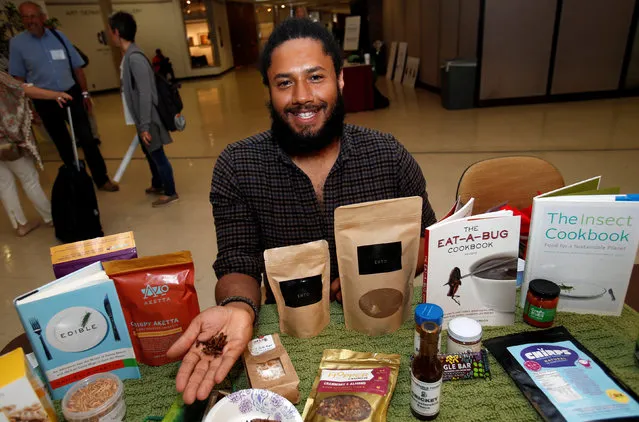
Anthony Hartinger, co-founder of Detroit Ento, a start-up turning locally sourced insects into food products, holds freeze-dried edible crickets in his hand during the “Eating Insects Detroit: Exploring the Culture of Insects as Food and Feed” conference at Wayne State University in Detroit, Michigan May 26, 2016. (Photo by Rebecca Cook/Reuters)
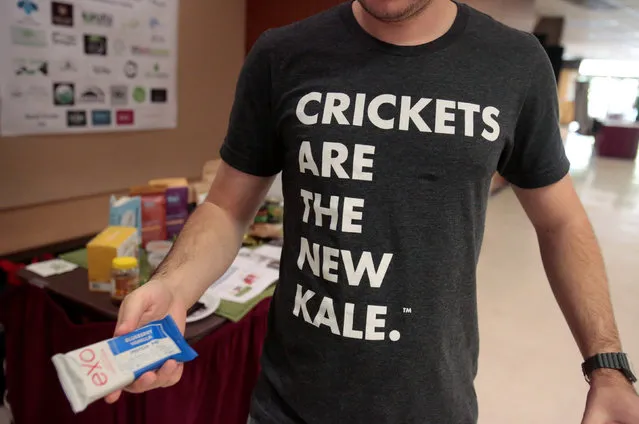
An attendee wears a “Crickets are the new kale” t-shirt during the “Eating Insects Detroit: Exploring the Culture of Insects as Food and Feed” conference at Wayne State University in Detroit, Michigan May 26, 2016. (Photo by Rebecca Cook/Reuters)
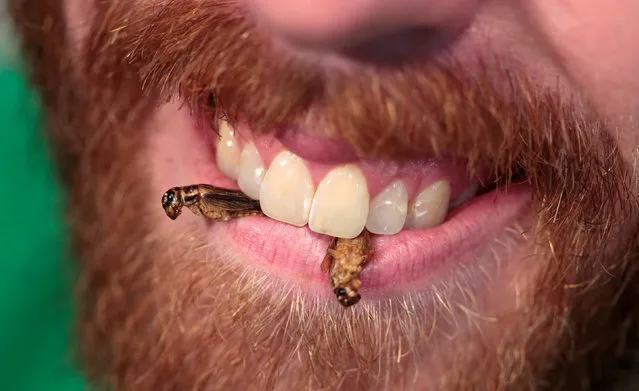
Robert Allen, co-founder of Texas-based Little Herds, a non-profit founded to educate the public on the benefits of insects for food and feed, holds edible freeze-dried crickets between his teeth during a “Eating Insects Detroit: Exploring the Culture of Insects as Food and Feed” conference at Wayne State University in Detroit, Michigan May 26, 2016. (Photo by Rebecca Cook/Reuters)
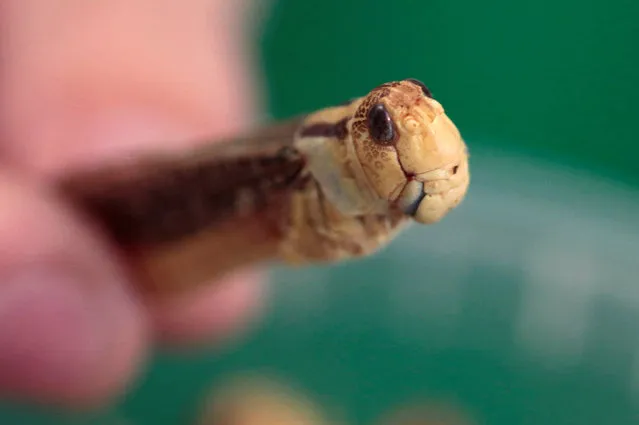
An attendee at the “Eating Insects Detroit: Exploring the Culture of Insects as Food and Feed” conference shows a freeze-dried edible locust insect at Wayne State University in Detroit, Michigan May 26, 2016. (Photo by Rebecca Cook/Reuters)
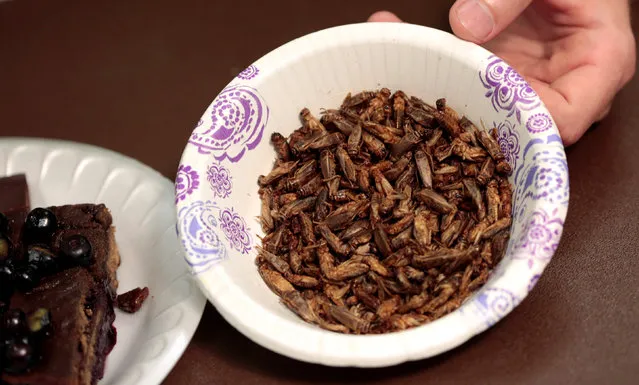
A bowl of edible freeze-dried crickets is displayed during the “Eating Insects Detroit: Exploring the Culture of Insects as Food and Feed” conference at Wayne State University in Detroit, Michigan May 26, 2016. (Photo by Rebecca Cook/Reuters)
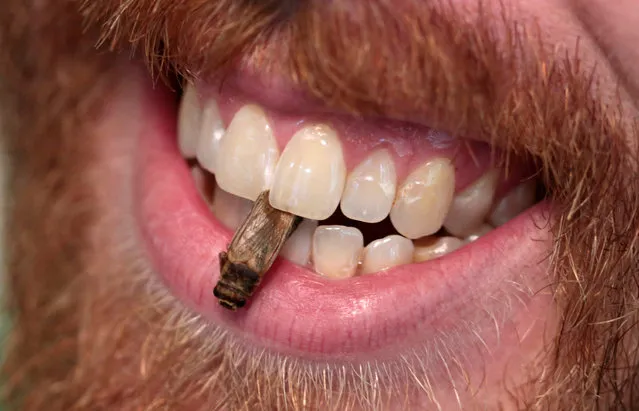
Robert Allen, co-founder of Little Herds, a nonprofit educational program promoting the use of insects for food and feed, holds a edible freeze-dried cricket between his teeth during a “Eating Insects Detroit: Exploring the Culture of Insects as Food and Feed” conference at Wayne State University in Detroit, Michigan May 26, 2016. (Photo by Rebecca Cook/Reuters)
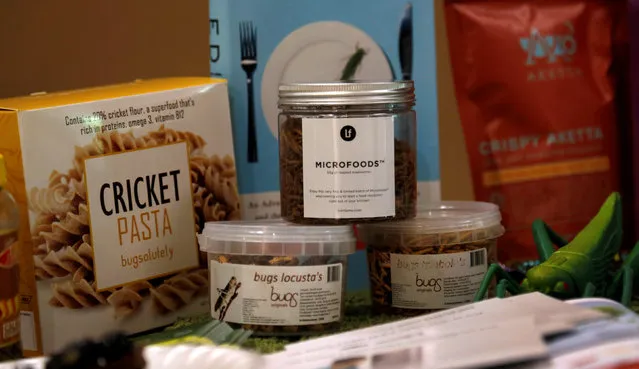
Food products made with insects in the ingredients are displayed during the “Eating Insects Detroit: Exploring the Culture of Insects as Food and Feed” conference at Wayne State University in Detroit, Michigan May 26, 2016. (Photo by Rebecca Cook/Reuters)
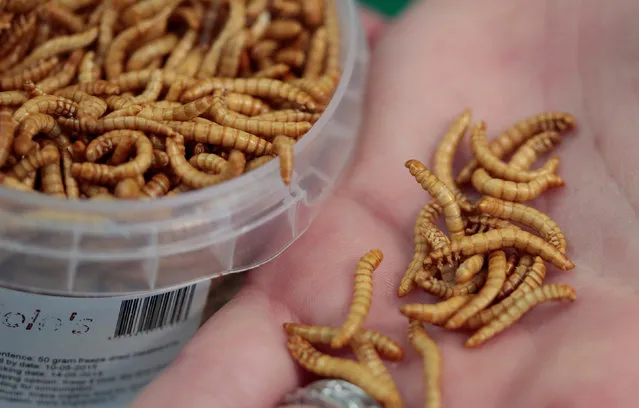
An attendee of the “Eating Insects Detroit: Exploring the Culture of Insects as Food and Feed” conference shows edible freeze-dried mealworms at Wayne State University in Detroit, Michigan May 26, 2016. (Photo by Rebecca Cook/Reuters)
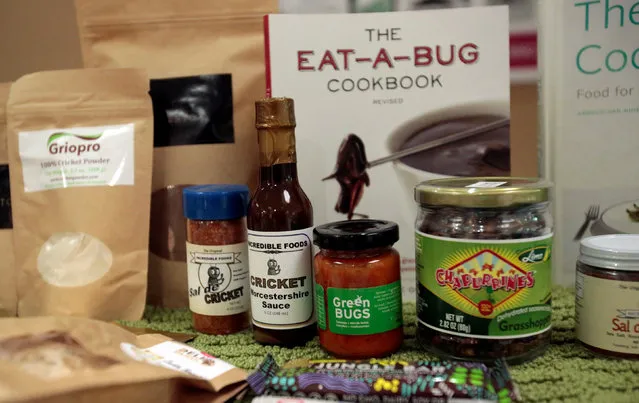
Food products made with insects in the ingredients are displayed during the “Eating Insects Detroit: Exploring the Culture of Insects as Food and Feed” conference at Wayne State University in Detroit, Michigan May 26, 2016. (Photo by Rebecca Cook/Reuters)
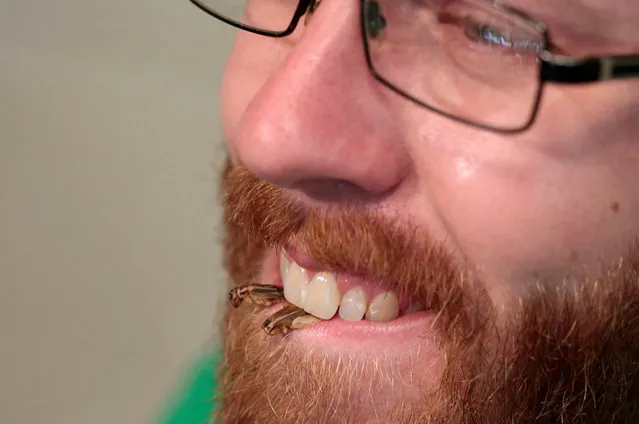
Robert Allen, co-founder of the Austin, Texas based Little Herds, a non-profit founded to educate the public about the benefits of insects as food and feed, holds freeze-dried crickets between his teeth during a “Eating Insects Detroit: Exploring the Culture of Insects as Food and Feed” conference at Wayne State University in Detroit, Michigan May 26, 2016. (Photo by Rebecca Cook/Reuters)
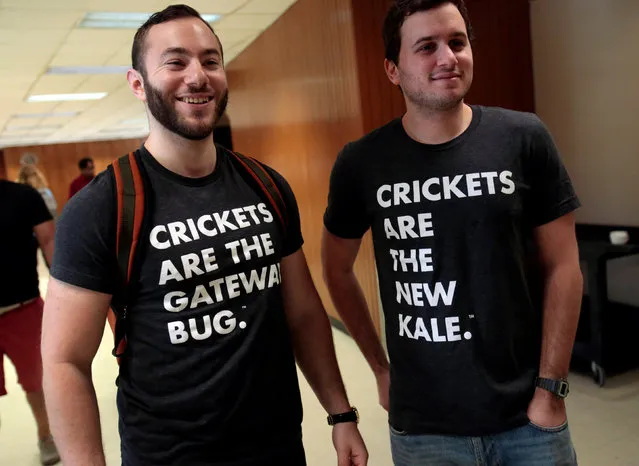
Gabi Lewis (L) and Greg Sewitz wear their t-shirts promoting crickets as food while attending the “Eating Insects Detroit: Exploring the Culture of Insects as Food and Feed” conference at Wayne State University in Detroit, Michigan May 26, 2016. (Photo by Rebecca Cook/Reuters)
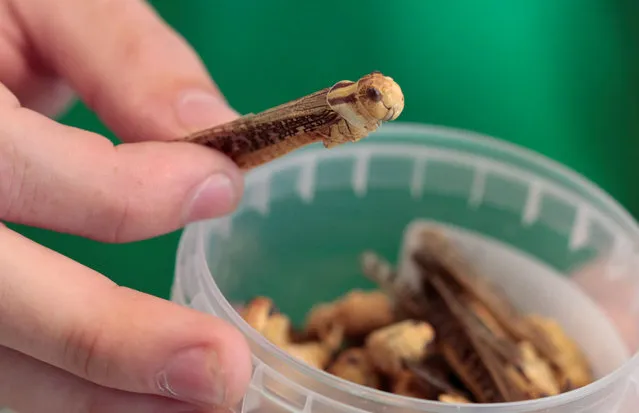
An attendee at the “Eating Insects Detroit: Exploring the Culture of Insects as Food and Feed” conference at Wayne State University shows an edible freeze-dried locust insect in Detroit, Michigan May 26, 2016. (Photo by Rebecca Cook/Reuters)
29 May 2016 09:41:00,
post received
0 comments
